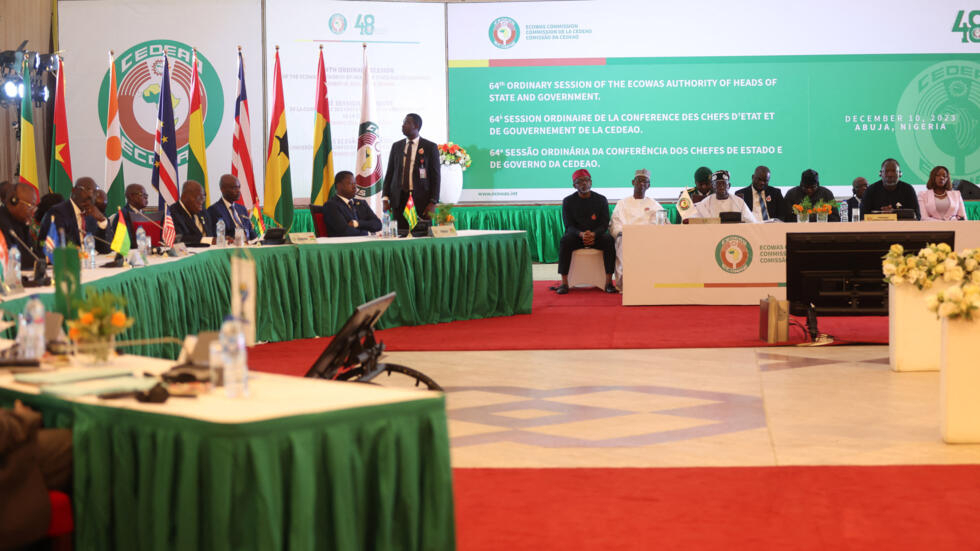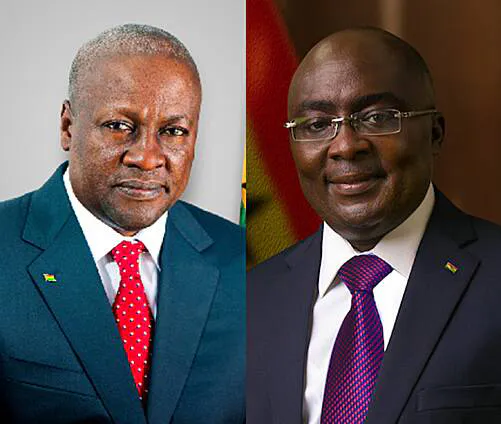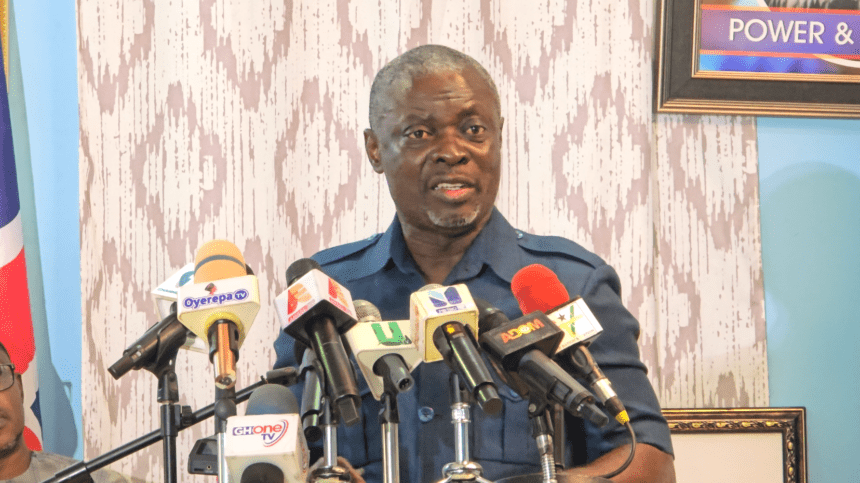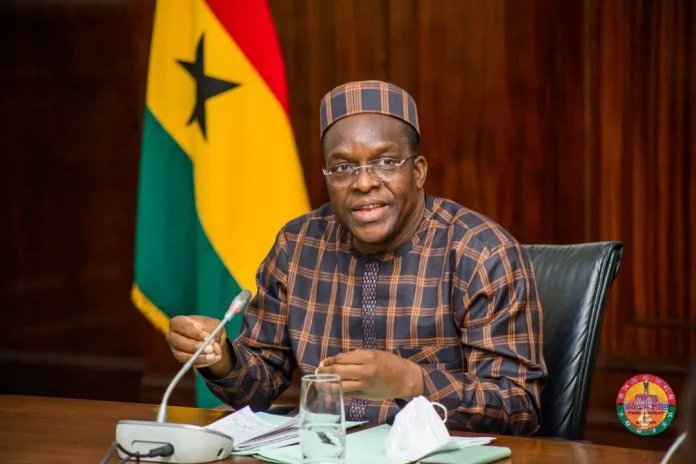Politics
Burkina Faso, Mali and Niger’s exit from ECOWAS – Economic and security implications for Ghana
Published
9 months agoon
By
Melody 911FM
On January 28, 2024, a significant regional development unfolded as Burkina Faso, Mali, and Niger formally requested to withdraw from the Economic Community of West African States (ECOWAS), one of the continent’s most notable regional blocs.
In a joint press statement released by the junta-led countries, the countries stated “ECOWAS, under the influence of foreign powers, betraying its founding principles, has become a threat to its member states and its populations whose happiness it is supposed to ensure” (Okafo, 2024).
To break the camel’s back, the trio, following in the footsteps of Ghana’s foremost president, Dr. Kwame Nkrumah, who demanded independence now, have declared their resolve to defy Article 91 of the bloc’s Treaty, which stipulates that member countries remain bound by their obligations to the regional bloc for a period of one year after notifying their withdrawal. They want to leave immediately.
In a letter addressed to the ECOWAS on February 7 by the Foreign Affairs Ministry of the Malian government, stated “the government of the Republic of Mali is no longer bound (by the) time constraints mentioned in article 91 of the treaty. The letter further noted that the ministry has decided to “withdraw, without delay” due to ECOWAS’ desecration of its own texts – citing when the organization failed to meet its obligations by closing member states’ borders with Mali in 2022, denying it access to the sea.
Analysts have indicated the severe impact this decision will have on the trio. However, what implications does this development have on Ghana?
Economic Ramifications
Article 27 of the ECOWAS treaty highlights the need for economic integration within the sub-region. To achieve this, member states are admonished to ensure the gradual removal of all obstacles to free movement of persons, services and capital (Paragraph 1 of Article 27). The presence of this protocol has enabled countries within the bloc to increase trade over time, despite the bottlenecks restricting the full implementation of the protocol. Ghana has enjoyed steady economic relations with the three countries, particularly with Burkina Faso.
According to the Observatory of Economic Complexity (OEC), Ghana has relished an increased annualized rate of 17.6% over two decades of trading with Mali, from $1.96 million in 1996 to $82.4 million in 2019. In 2019, Ghana exported $82.4 million to Mali while importing $12.3 million in the same period. This highlights the economic ties, no matter how ‘small’, which exist between the two West African countries. Unlike Mali, Burkina Faso borders Ghana to the immediate north, and thus, has a greater percentage of trading with Ghana.
According to the United Nations COMTRADE database on international trade, Ghana exports to Burkina Faso amounted to $277.69 Million in 2019. In reverse order, Burkina Faso’s export to Ghana totalled $53.08 million during 2022.
Commodity-wise, it is estimated by the Ghana Incentive-Based Risk-Sharing System for Agricultural Lending (GIRSAL) that Ghana currently imports 90 percent of its fresh tomatoes from Burkina Faso, with a national consumption demand in excess of 800,000 metric tonnes per annum (B&FT Online, 2024). B&FT also estimates that Burkina Faso and Mali account for almost 70 percent of Ghana’s livestock imports while in 2021, the main destinations of onion exports from Niger were Ghana ($21.7 million). Ghana’s Ministry of Food and Agriculture estimates that onion imports from Niger, currently valued at $26 million, will increase to $30 million by the close of 2024.
The numbers above point to a major economic leak for Ghana in the wake of the trio’s exit from the ECOWAS. This is because, through the ECOWAS Trade Liberalization Scheme (ETLs) – the main operational tool for promoting Free Trade Area within West Africa – Ghana is relieved from customs duties levied on imports and exports as well as some non-tariff barriers. The Ghana Export Promotion Authority states that:
“As member of ECOWAS, Ghana benefits from the fact that there are numerous international Economic Partnership Agreements (EPA). Most important one is the ECOWAS-EU EPA, which led to the gradual removal of trade restrictions between the partners”
As highlighted by the Global Credit Rating (GCR), there is an expected wide-ranging inflationary impact in the domestic markets of all the three countries, which will reflect in the future prices of food commodities imported into neighbouring countries such as Ghana (see B&FT report 2024). A rise in the cost of imports and exports for Ghanaian traders is imminent due to the absence of regulations which enable traders to enjoy exemptions. This decline in trade relations will thus affect Ghana’s economy, affect the purchasing power of traders and consumers in general. In simple terms, there is a tendency for reduced bilateral economic relations between Ghana and the individual countries.
This means Ghana will lose out on a significant portion of its GDP as consumers face acute shortages or begin to pay more for the same or even less due to a possible re-introduction of tariffs. Given the current position of the Ghanaian economy, a further instability in international trade will worsen woes of the state. Already, the Ghana has defaulted on its debt servicing program, forcing it to restructure most of its external debts to favour an IMF bailout.
How safe will our borders be?
In a world which is becoming more interconnected, both for better and for worse, international cooperation has become ever more crucial in dealing with the raging complex security threats at both global and national levels. The exchange of information between trusted allies and partners is at the heart of devising and executing any joint security action.
Now, second only to Afghanistan for the highest number of terrorist actions and resulting deaths, is Burkina Faso – which shares a land border with Ghana. A report by the African Defense Forum, based on the Global Terrorism Index said, Burkina Faso and Mali together account for 52% for all terrorism-related deaths in Africa (ADF, 2023). To deal with the butterfly effect of terrorism, a number of joint agreements have been signed among the Sahel countries.
Notable among them are the Multinational Joint Taskforce (MNJTF), the Group of Five for the Sahel (G-5 Sahel) and the Accra Initiative (AI) (Birikorang & Abdallah, 2023). The Accra Initiative which is the most recent collaboration established in September 2017 faces a bigger setback in the face of the Mali, Niger and Burkina Faso exit from ECOWAS. The pillars of the AI are:
(1) information and intelligence sharing
(2) training of security and intelligence personnel
(3) conducting joint cross-border military operations to strengthen border security.
One of the critical pillars of counter-terrorism is intelligence sharing. Kruys (2007) succinctly captures it saying: “Operations to counter terrorism and insurgency depend largely on timely accurate intelligence”. This position is also highlighted by Danoy and Corbett (2022) who posit that “as any good policymaker, planner, or military commander will tell you, the formulation and execution of an effective national security strategy is dependent on the availability of sound intelligence”.
However, as acknowledged in the introductory paragraph of this sub-section, intelligence sharing is firmly rooted in trust. In the wake of the trio’s exit from the ECOWAS, there is an imminent threat to the trust enjoyed among these countries if it has not already broken. This argument is rooted in the basis for which Burkina Faso, Mali and Niger have decided to end their longstanding relationship with the regional block – that the ECOWAS “has become a threat to its member states”.
The trio’s lack of confidence in the ECOWAS can and will potentially be transferred to all other members of the group. This will reflect in restricted information sharing and collaboration between individual member states, such as Ghana and the trio.
Burkina Faso’s closeness to Ghana is a greater worry considering the heightened security crises in Burkina Faso and the impending general election in Ghana. What becomes of the relationship between the members of the AI? Intelligence sharing once again can be hampered considering the fact that the trio are part of the agreement. A terrorism spillover effect can be triggered by this new development.
Recommendations
- Ghana must re-access its bilateral relations with Burkina Faso, Mali and Niger and strengthen cordial relations. This may involve re-negotiating bilateral trade agreements.
- Given the potential security implications of the trio’s withdrawal from ECOWAS, Ghana should bolster its border security measures. This may involve increasing patrols, investing in technology for border surveillance, and enhancing collaboration with neighbouring countries to combat transnational security threats.
- With the potential disruption to food and livestock imports from Burkina Faso, Mali, and Niger, Ghana should explore diversifying its sources of agricultural products. This could involve investing in local agricultural production or establishing trade agreements with other countries to ensure food security and stabilize prices in the domestic market.
- Ghana should advocate for reforms within ECOWAS to address concerns raised by member states. This will help in promoting transparency, accountability, and inclusivity in the decision-making processes.
Final comments
The ongoing impasse between ECOWAS on one side and Burkina Faso, Mali, and Niger on the other end has myriad impacts on individual states such as Ghana. While many analysts are focused on the worsening plight to be experienced by the trio, we must not lose sight of the spill-over effect. The arguments being raised by the trio regarding the inability of ECOWAS to protect the interests of its members have been trumpeted within many writings. If the necessary actions needed to build trust are not factored into the future of ECOWAS, there is a likelihood of other dissidents in the future. Ghana has a role to play considering its position in the formation of ECOWAS and its respected position within the sub-region.
You may like
Politics
Bawumia- “Mahama’s Economic Record Bad”
Published
2 weeks agoon
November 11, 2024By
Melody 911FM
The presidential candidate of the New Patriotic Party (NPP), Vice President Dr. Mahamudu Bawumia, has openly criticised former President John Dramani Mahama’s economic management, describing it as the worst among Ghana’s Fourth Republic leaders.
According to him, during Mr. Mahama’s tenure, the economy experienced substantial setbacks across multiple sectors, marked by soaring inflation, sluggish growth, and increasing unemployment.
Speaking at the Ghana CEO Presidential Gala in Accra last Thursday, Dr. Bawumia asserted that his criticism was based on hard economic data rather than partisan views.
He contrasted this with what he described as Ghana’s improved economic trajectory under NPP leadership, asserting that Mr. Mahama’s tenure represented a “decisive failure in economic stewardship.”
Dr. Bawumia stressed that his analysis was intended to highlight the need for sound economic management and that his remarks were meant to shed light on measurable outcomes of Mr. Mahama’s policies, which he said weakened the country’s economic resilience.
The NPP presidential candidate expressed his commitment to building on the progress achieved under the Akufo-Addo administration.
He underscored the importance of data-driven policies and positioned himself as the candidate most capable of navigating Ghana through future economic challenges.
“Despite the impact of global economic challenges, it might surprise some, including the former president himself, that his administration ranks the lowest in economic performance among all Fourth Republic leaders,” Dr. Bawumia reiterated.
He continued, “Yet, he speaks about our economic performance as though his was superior.”
Business Development
Dr. Bawumia also used the opportunity to reaffirm his commitment to strengthening business development in the country, stressing that resilient businesses are foundational to a thriving economy.
He praised the role of the private sector in creating jobs, driving innovation, and fostering sustainable growth.
The NPP flagbearer detailed policies introduced by the current administration to support Ghanaian businesses, including initiatives aimed at enhancing entrepreneurship, expanding access to credit, and advancing digitalisation.
According to Dr. Bawumia, these steps are critical to building a competitive, innovative, and resilient business sector.
He promised that, if elected, he would continue to prioritise business growth in order to ensure the Ghanaian economy remains vibrant and competitive on a global scale.
“Ladies and gentlemen, as you may know, Bawumia means business! From banking to vice presidency, my commitment to business development has been unwavering.
“Strong businesses lead to a strong economy—show me a prosperous nation, and I’ll show you resilient businesses behind it,” he concluded.
Politics
NPP, NDC have mismanaged Ghana – GUM
Published
2 weeks agoon
November 11, 2024By
Melody 911FM
The Ghana Union Movement (GUM) has criticised the New Patriotic Party (NPP), and the National Democratic Congress (NDC) for “mismanaging the country” and supervising the sale of state-owned businesses bequeathed by previous governments.
The Party said the sale of state-owned factories to private individuals and failure to revive defunct state enterprises largely accounted for the growing youth employment situation that had bedeviled the country.
These were contained in a news release issued by the Party’s founder and leader, Reverend Christian Kwabena Andrews, and shared with the Ghana News Agency.
The GUM urged the youth to “be concerned about their future” and vote to break the duopoly enjoyed by the NPP and NDC for decades.
“Embracing both NDC and NPP as a party is just endorsement of the continuity of the Ghanaian predicament. Ghanaian youth must rise to vote massively against these parties, because they were the source of our problems today,” it said.
The GUM said the slow pace of development since the commencement of the Fourth Republic in 1992 justified the call for the “total overhaul” of the 1992 Constitution “considering the mess caused by both NDC and NPP government respectively.”
The Party proposed the adoption of what it termed as “Hybrid African Democracy” which it said was suitable governance model for the country.
“The current model was copied line, hook, and sinker from the West, where they have established and structured institutions to make their democracy work,” it said.
The GUM also called for downsizing of Parliament to reduce the cost of running the business of the House.
The Party said that salaries and benefits awarded to 275 Members of Parliament as well as Article 75 Office Holders “drain the national purse than building it.”
“We urge the public to vote for the Ghana Union Movement for a reliable, better Ghana with the Ghanaian youth as its core,” the Party said.
The GUM caused a stir when it placed third in the 2020 presidential election, beating the traditional Convention People’s Party, People’s National Convention, and the Progressive People’s Party.
The party garnered 105,548 votes, representing 0.805 per cent of the total ballots cast.
Rev. Andrews has indicated that the Party would build on its achievements in 2020 and affect the 2024 presidential and parliamentary elections.
The GUM has promised to establish factories in every region and operate a free port to boost economic activities and improve the living conditions of the people.

In a significant development, Ghana’s Parliament Speaker, Alban Sumana Kingsford Bagbin is set to address the media on Wednesday, November 6, 2024.
The press conference, scheduled for 2:00 pm at the Justice D.F. Annan Auditorium, Job 600, Parliament House, aims to tackle critical issues affecting Ghana’s parliamentary democracy.
Recent Developments
Alban Bagbin’s address comes amidst significant political developments in Ghana.
As Speaker, he has played a pivotal role in shaping the country’s legislative agenda.
His leadership has been marked by efforts to strengthen parliamentary oversight and promote transparency.
The engagement seeks to provide a platform for the media to discuss pressing concerns impacting Ghana’s democratic growth.
The Speaker, Alban Bagbin, is expected to shed light on recent events that have shaped the country’s political landscape.

Bawumia- “Mahama’s Economic Record Bad”

Peter Okoye reacts to alleged song ownership by twin brother
















